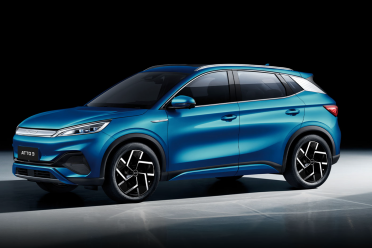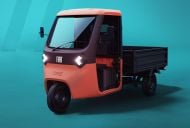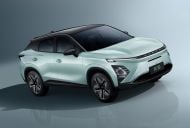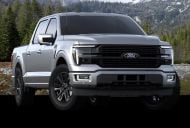Chinese battery giant CATL has revealed its third-generation cell-to-pack (CTP) battery technology that’s known internally as Kirin or Qilin, depending on what translation software you use.
Compared to traditional battery packs, CTP battery technology gets rid of battery modules and additional wiring, making them easier, faster and cheaper to produce.
CATL says this battery technology’s weight, energy density and volumetric energy density “continue to stay at the highest level of the industry”.
It will be available for use in passenger and commercial vehicles.
According to Chinese media reports, this CATL third-gen CTP battery technology is ready for mass-production and it’ll officially launch in April 2022.
The Chinese battery giant suggests with the same battery chemistry and pack size, the third-generation CTP battery technology “can deliver 13 per cent more power than the [Tesla] 4680 battery”.
One of the images uploaded by CATL indicates this latest CTP battery technology is available in single, double and triple block configurations.
It says that a single CTP battery block can provide a driving range of up to 200km, although it doesn’t list what efficiency standard it used.
This Kirin CTP battery technology is available in both lithium iron phosphate (LFP) and nickel manganese cobalt (NMC) cell chemistries and offers the following energy density figures:
LFP:
- Gravimetric energy density: ≥160Wh/kg
- Volumetric energy density: ≥290Wh/L
NMC:
- Gravimetric energy density: ≥250Wh/kg
- Volumetric energy density: ≥450Wh/L
The main competitor to this CATL CTP battery technology is the BYD Blade battery, which is used in the BYD Atto 3.
PushEVs has reported the Blade battery in the long-range Atto 3, which is also known as the Yuan Plus in other markets, has a comparable gravimetric energy density of 150Wh/kg.
PushEVs also speculates that if the Chinese-built Tesla Model 3 used the new CATL batteries it would be 28 per cent more energy dense – from 125 to 160Wh/kg. This would theoretically mean more range from the same size battery pack.
Seeing that CATL already produces LFP batteries the Chinese-built Tesla Model 3 and Model Y, it wouldn’t be surprising if this new technology makes its way into these cars.
CATL is the world’s largest battery manufacturer and currently produces batteries for automakers including Tesla, Volkswagen Group, BMW, Hyundai, Honda and Volvo.










